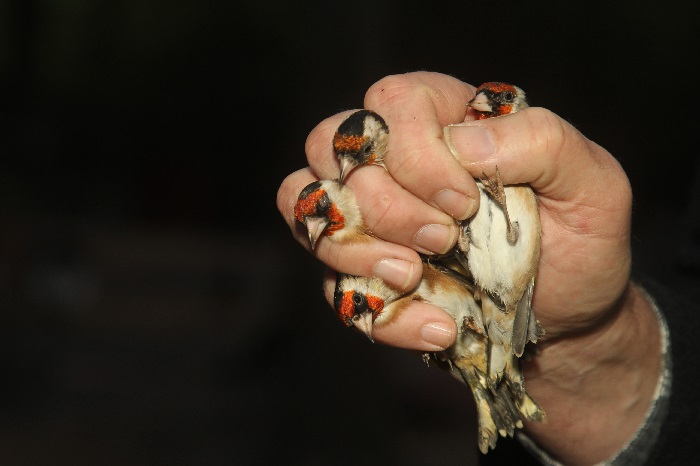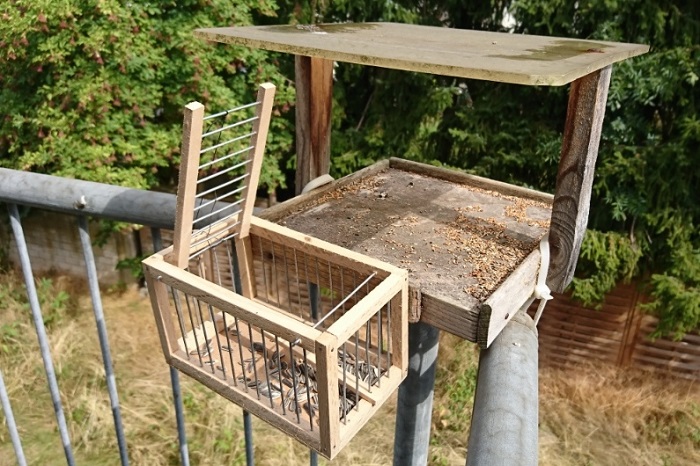Songbird trapping in Germany

In Germany, the capture of wild birds for the cooking pot or cage and aviary has been prohibited for many decades. In the 1920s, there were still large trapping facilities in Germany with which songbirds were caught for consumption. As a rule, nets were used; snares and gluesticks had already been banned several decades earlier. Until the 1970s, some German states still allowed finches to be caught with small nets - the animals ended up as "house birds" in the living rooms. With the passing of the first Federal Nature Conservation Act in 1979, this was finally banned for good.
But especially in the mining areas - in particular the Harz Mountains, in the Thuringian Forest and in the North Rhine-Westphalian hard coal mining area - the tradition of bird-trapping is still alive. There are countless "forest bird keepers" here to this day, most of whom legally breed bullfinches, goldfinches and other native and protected finches, but some of them also use nets to take wild birds. The illegally caught birds are used to 'refresh' the bloodlines in the breeding farms or are sold behind closed doors.

But poaching for consumption is also still happening even today: Especially from the Mediterranean area, bird-trapping was brought along as a tradition. In addition to nets and cages, glue is also used. The remains most concentrated above all in the Ruhr and the greater Frankfurt area.
Between 2005 and 2017, CABS documented 60 cases of illegal songbird trapping in Germany. The number of unreported cases is probably very high, as many are caught on private properties and hidden allotments.
Particularly in North Rhine-Westphalia, the authorities have already been able to catch several bird trappers and bring them to justice on the basis of information provided by staff at our headquarters in Bonn.






